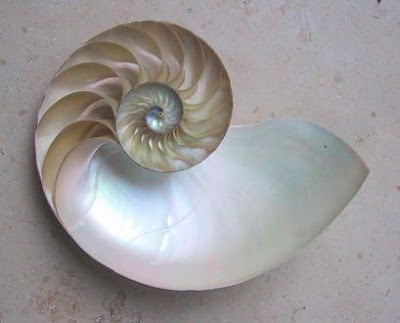The Beauty of a life well lived . . .
As I return to my blog, I am surprised to find that quite so much time has elapsed since my last entry, time spent in the blur of sudden illness and grief. I also found it ironic yet comforting that the last entry on May 5 was about the beauty of being family, especially as we have just lost a beloved family member.
The bustle in a house
The morning after death
Is solemnest of industries
Enacted upon earth,--
The sweeping up the heart,
And putting love away
We shall not want to use again
Until eternity.
-Emily Dickinson
William Wordsworth, that great English Romantic poet, described poetry as “the spontaneous overflow of powerful feelings.”
Over the past two weeks I have discovered that saying to be so true as I dealt with processing the unexpected death of a beloved member of our family, one of the matriarchs of our clan. Our Aunt Mary was one of five sisters, ages 78 to 90, with a brother of 82, who have spent longer than the the average span of time living their lives together with a loving closeness most people have not experienced in their lives. We always called the five of them “the girls” because of the incredibly youthful and joyous personalities they have maintained throughout their lives. As the decades passed we never gave much thought to them as growing older because their spirits never seemed to age. Of course we knew the time would come when they would have to leave the family, and we are so blessed to have had them with us to love, encourage, and support us for so long. Aunt Mary, we will miss you so, but we will carry your influence with us always.
Grief leaves us bereft, and in the immediate numbing moments, hours, and days of our grieving, we find it hard to say those words which will express what our hearts are experiencing. But what I found happening during this time was that bits of poems and verses of scripture memorized long ago kept rising to the surface of my mind and providing my pained thoughts what Robinson Jeffers described as “the honey of peace in old poems.”
Although we had not quite expected this to be Aunt Mary’s time to leave us, regardless of her 87 years, thankfully we were given the gift of a few days in which to say goodbye, and so my family gathered in from all around, as they always do with all of life’s occasions, joyous or sad, to surround her and each other with comfort, love, and ultimately the joy of being family. There were ten of us of all ages surrounding her bedside at the midnight hour when she finally left us.
One of the great hymns of the Faith which is so meaningful in times of grief is taken from John Greenleaf Whittier’s poem “The Eternal Goodness,” written in 1867.
I know not what the future hath
Of marvel or surprise,
Assured alone that life and death
God’s mercy underlies.
Of marvel or surprise,
Assured alone that life and death
God’s mercy underlies.
And if my heart and flesh are weak
To bear an untried pain,
The bruised reed He will not break,
But strengthen and sustain.
To bear an untried pain,
The bruised reed He will not break,
But strengthen and sustain.
No offering of my own I have,
Nor works my faith to prove;
I can but give the gifts He gave,
And plead His love for love.
Nor works my faith to prove;
I can but give the gifts He gave,
And plead His love for love.
And so beside the silent sea
I wait the muffled oar;
No harm from Him can come to me
On ocean or on shore.
I wait the muffled oar;
No harm from Him can come to me
On ocean or on shore.
I know not where His islands lift
Their fronded palms in air;
I only know I cannot drift
Beyond His love and care.
Their fronded palms in air;
I only know I cannot drift
Beyond His love and care.
Another powerful poem that came to mind was Oliver Wendell Holmes, “The Chambered Nautilus,” which compares our life’s journey to that of the nautilus, a marine creature which builds its shell around itself. As the nautilus grows through the years it twists and bends itself around a mathematical curve, creating spiraling chambers of pearly beauty which accommodate its growth. As each chamber is left behind, it is sealed off and these chambers create a buoyancy that carries the shell along the sea path. Although each outgrown chamber lends support to the nautilus, it only lives in the last and largest chamber. For Holmes, the chambered nautilus provides an answer to life’s greatest question, if a man die, will he live again?:
Thanks for the heavenly message brought by thee,
Child of the wandering sea . . .
And the message is this:
Year after year beheld the silent toil
That spread his lustrous coil;
Still, as the spiral grew,
He left the past year's dwelling for the new,
Stole with soft step its shining archway through,
Built up its idle door,
Stretched in his last-found home, and knew the old no more.
Leading to the final conclusion . . .
Build thee more stately mansions, O my soul,
. . .
Till thou at length art free,
Leaving thine outgrown shell by life's unresting sea!
Other bits of poetry came to mind over this time, such as these lines from Wordsworth’s “Ode on the Intimations of Immortality”:
What though the radiance which was once so bright
Be now forever taken from my sight,
Though nothing can bring back the hour
Of splendor in the grass, of glory in the flower;
We will grieve not, rather find
Strength in what remains behind,
In the primal sympathy
Which having been must ever be,
In the soothing thoughts that spring
Out of Human suffering,
In the faith that looks through death . . .
William Wordsworth also said that,
“The best portion of a good man's life is his little, nameless, unremembered acts of kindness and of love”
But we will remember, Aunt Mary, all the little nameless ways in which you filled our lives with love.
Charm is deceptive, and beauty is fleeting;
but a woman who fears the LORD is to be praised.
Honor her for all that her hands have done,
and let her works bring her praise at the city gate.
but a woman who fears the LORD is to be praised.
Honor her for all that her hands have done,
and let her works bring her praise at the city gate.
-Proverbs 31: 30-31
______________________________________

